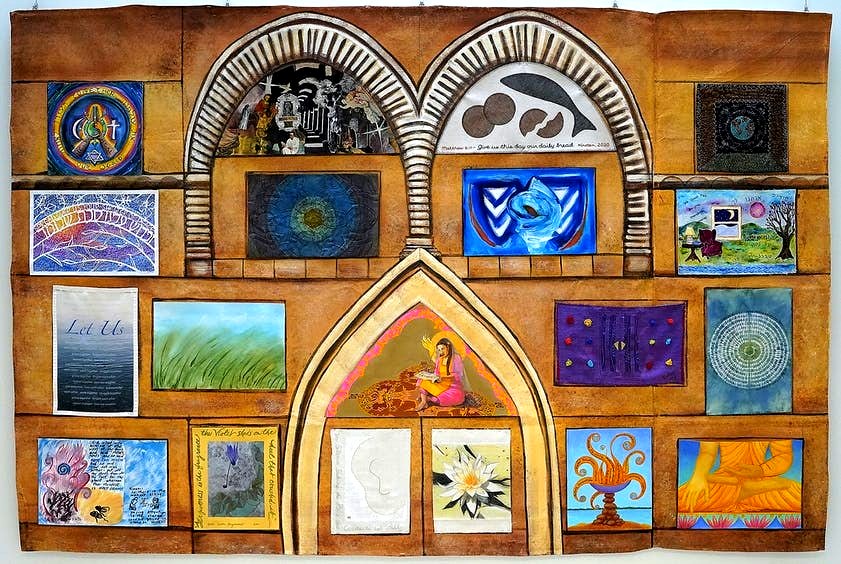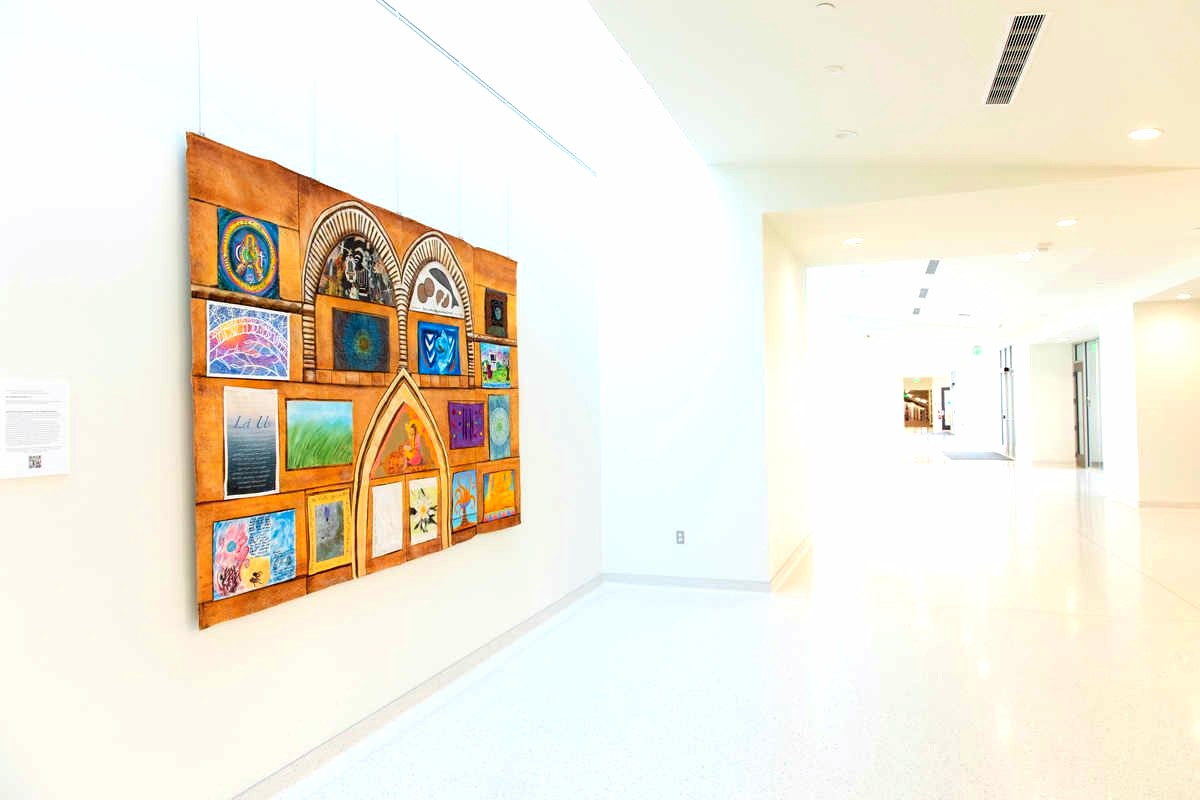Hans Gustafson | 14 FEB 2025
This past January, 17 undergraduate students from the University of St. Thomas embarked on a transformative 4-credit study abroad experience exploring dialogue, diversity, and leadership across Minnesota and Norway. Led by Dr. Hans Gustafson and Dr. Ryan Dulkin in partnership with DialogPilotene, this immersive course challenged students to step beyond echo chambers and engage in complex conversations on religion, antisemitism, Islamophobia, racism, secularism, extremism, and pluralism.
The course began in Minnesota at the Jay Phillips Center for Interreligious Studies at the University of St. Thomas, where students developed a foundation in religious literacy, secularism, and interreligious engagement before traveling abroad. Each day focused on a major religious tradition or concept, starting with an introduction to the course and case studies. They also reflected on Janteloven and “Minnesota Nice,” two unwritten societal codes that shape cultural expectations of humility, politeness, and belonging in Norway and Minnesota. The week concluded with a visit to the Norway House in Minneapolis, where students considered the historical and cultural ties between Norway and Minnesota, preparing them for the transition abroad.
At the heart of this experience was DialogPilotene, an organization at the forefront of promoting dialogue, preventing alienation, and countering intolerance, conflict, and extremism in Norwegian society. With Professors Gustafson and Dulkin, the program was co-led by Tonje Kristoffersen and Eliana Hercz from DialogPilotene, who provided faculty and students with intensive training in dialogue facilitation, challenging them to grapple with issues of identity, religious diversity, and freedom of expression.
The academic foundation of the course was strengthened by faculty at the University of Oslo’s Faculty of Theology (TF) and the Norwegian School of Theology (MF), where students engaged in scholarly discussions on secularism, religious pluralism, and interreligious engagement in Norway. Their insights helped students draw comparisons between the Norwegian and American approaches to religious diversity.
Throughout the course, students also had the privilege of engaging with organizations at the forefront of human rights, peacebuilding, and religious dialogue. At 10 of August Foundation, they reflected on interfaith solidarity while learning about the victims of the 2019 mosque attack in Norway. A visit to the Nobel Peace Center offered insight into Norway’s role in global peace efforts, while conversations with leaders from the Council of Religious and Life Stance Communities in Norway (STL) highlighted how interfaith collaboration influences policy and public discourse. At the HL Center (Center for Studies of the Holocaust and Religious Minorities), students confronted Norway’s complex role in the Holocaust and examined both historical and contemporary efforts to address antisemitism and religious discrimination. The visit had a profound and challenging impact, pushing students to wrestle with difficult histories and reflect on the ongoing responsibility of societies to confront prejudice and injustice.
For many students, the most profound moments occurred during site visits to memorials and places of historical significance. One student reflected:
Our experiences in Norway will stay with us here in Minnesota for a long time. We learned a lot about inter-religious interaction in the classroom, but we felt the importance of the topic first-hand during site visits to memorials. I’m bringing back skills in dialogue that I can honestly say will help me in every area of life where I talk to someone with different worldviews than my own.
Upon returning to Minnesota, the course culminated in a final dialogue session with faith and community leaders from the Minnesota Multifaith Network. Reflecting on the experience, Khaled Elabdi, one of the participating interfaith leaders, shared
Engaging in these conversations, exchanging perspectives, and witnessing the power of open and respectful dialogue reaffirmed the importance of such actions in fostering understanding and bridging cultural and interfaith divides. Providing students with the opportunity to interact directly with Minnesotan cultural and religious leaders further reinforced the practical application of their dialogue skills and demonstrated the transformative impact of these exchanges.
Reflecting on the program, Dr. Hans Gustafson shared “The students’ thoughtfulness and willingness to step into vulnerable and complex conversations ensured that the program remained especially meaningful. We all learned from one another and grew together throughout the experience, and I am very proud of them.” By blending academic inquiry with experiential learning, the course empowered students to embrace complexity, foster constructive disagreement, and lead with empathy in an increasingly diverse world.




No Comments